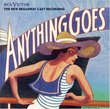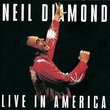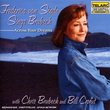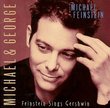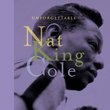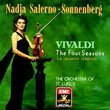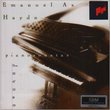| All Artists: Brahms, Rubinstein Title: Piano Concerto 1 Members Wishing: 0 Total Copies: 0 Label: RCA Release Date: 10/9/1992 Genre: Classical Styles: Chamber Music, Forms & Genres, Concertos, Historical Periods, Classical (c.1770-1830), Modern, 20th, & 21st Century Number of Discs: 1 SwapaCD Credits: 1 UPC: 090266126323 |
Search - Brahms, Rubinstein :: Piano Concerto 1
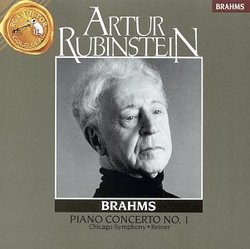 | Brahms, Rubinstein Piano Concerto 1 Genre: Classical
|
Larger Image |
CD DetailsSimilarly Requested CDs
|
CD ReviewsRCA's first stereo concerto recording. 04/20/1999 (5 out of 5 stars) "Before Reiner and Rubinstein had their famous feud and parting during the Rachmaninoff 2nd Concerto/Paganini Rhapsody recordings in 1956, they got together in April of 1954 while they were still on speaking terms to put on tape this first stereo concerto recording by RCA. However, for years, the recording was available only in mono because somehow, RCA had lost the stereo master tape. Eventually, the mono issue of this recording went out of print, and it wasn't until the late 1970's that the stereo master turned up in RCA's vaults and was reissued on the Red Seal LP label.The successful technology behind the one-month-earlier Reiner/Chicago/Richard Strauss in High Fidelity recording was applied again here, and the results are comparable. Both the piano and orchestra are well-balanced with each other in clear, early stereo sound in a performance without equal." Great sound, great performance by Rubinstein and Reiner. 11/21/1999 (5 out of 5 stars) "The Brahms d minor, as one critic put it, is a Titan of concertos. Arthur Rubinstein made it one of his specialties and recorded it at least twice in the stereo era: the Reiner recording as well as the live Metha recording made in Israel at the end of his career.This was one of the early RCA stereo recordings; the first concerto recording made in April, 1954 in Chicago's Orchestra hall. Like the other early CSO stereo recordings by RCA only two microphones were hung. One must remember that while the hall had poor audiance accoustics it was probably one of the best recording halls in the country. The Reiner era brought the Chicago Symphony up to the level of one of the best in the world. Reiner's touch was apparant from the beginning as this recording displays. In 1963, after Reiner left due to his health, the hall was ruined (for recording purposes) when it was rehabilitated. RCA had grand plans to have Rubinstein record most of the major concerti with Reiner. All of that fell apart during the Rachmoninoff 2nd Concerto session when Rubinstein was told by Reiner that "his orchestra never made mistakes" after the pianist had requested some touch-up time for mistakes he had made. Eventually Reiner did the touch up session but that was the end of what could have been a great collaboration. As a result of the feud Jascha Heifitz also terminated any recording or performances with Reiner. A pity we can not repeat Arthur's comments to his wife the following morning at the Congress hotel but after all, this is a musical review and, besides, it was all in French!This is a performance of Olympian proportions. Rubinstein was at his peak and it shows in the last movement, for example. The sound is great; it is difficult to believe that this is a 1954 recording! The orchestral support is first class as is the conducting. The CSO at this time was made up of a lot of younger musicians that came aboard right after World War II. The first movement builds up where it should -right up to the climax at the closing section. The second movement is lyrical without being over indulgent. The third movement, as mentioned, is hard driven.We must thank RCA for re-issuing this performance. In fact, we must really thank RCA for finding those old stereo masters from the mid-1950's and first releasing them on LP and now on CD.If one could make a comparison the only performance I would consider at this point was the historical Schnabel/Szell recording made in the 1930's that is again somewhat out of print. In any event the Rubinstein/Reiner performance is the one to set the standards by for stereo recordings." The pinnacle of Rubinstein's career Conrad H. Weisert | Chicago, Illinois USA | 02/18/2000 (5 out of 5 stars) "This Concerto performance catches the legendary Polish pianist in top form. Rubinstein's earlier Brahms was often shallow and immature, and his later performances lacked energy. Some disputes between conductor and pianist are apparent to the critical listener, but this is still a marvel of pianism, conducting, orchestral playing, and recorded sound."
|

 Track Listings (6) - Disc #1
Track Listings (6) - Disc #1![Vivaldi's Ring of Mystery [With CD]](https://nationalbookswap.com/cd//m/30/0730/80730.jpg)

